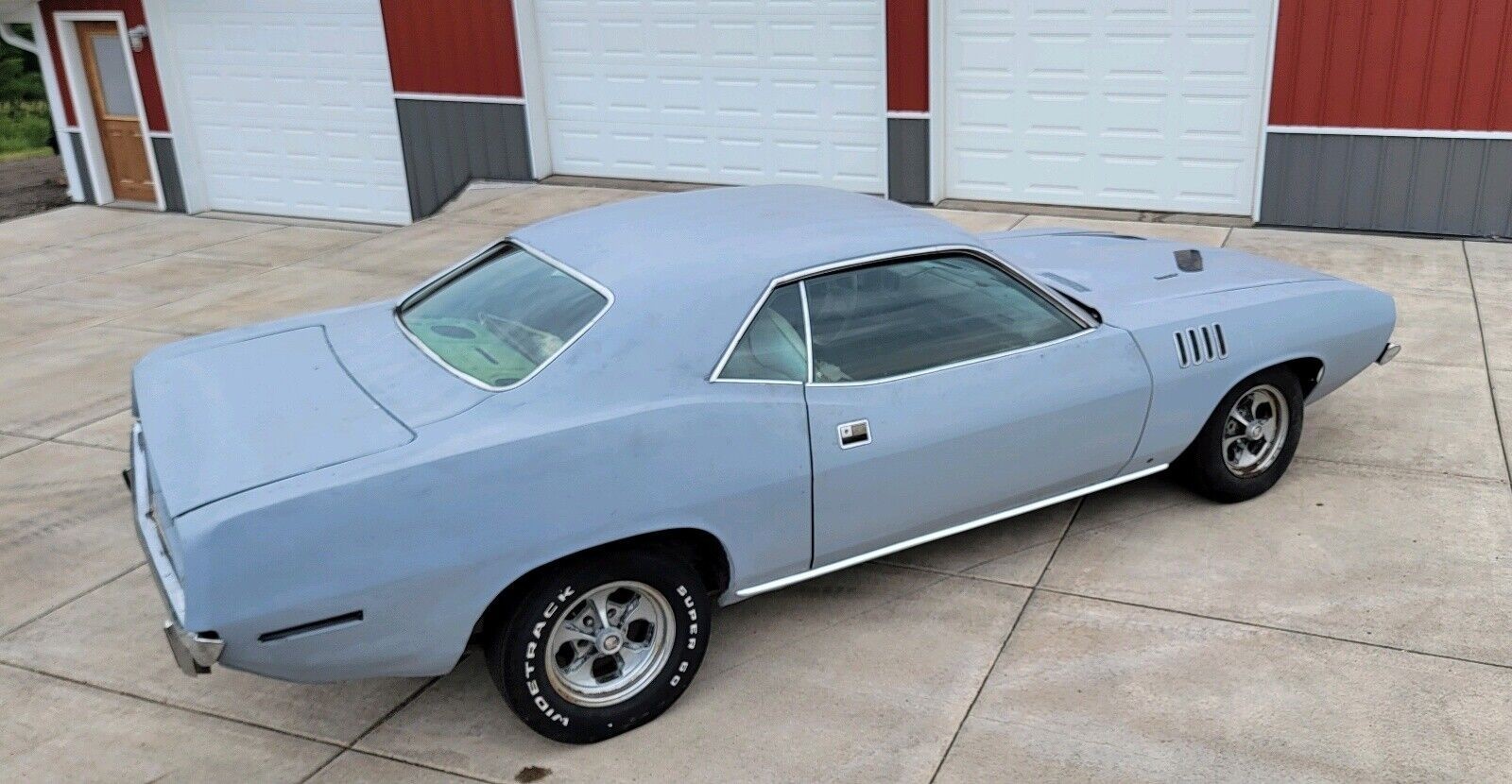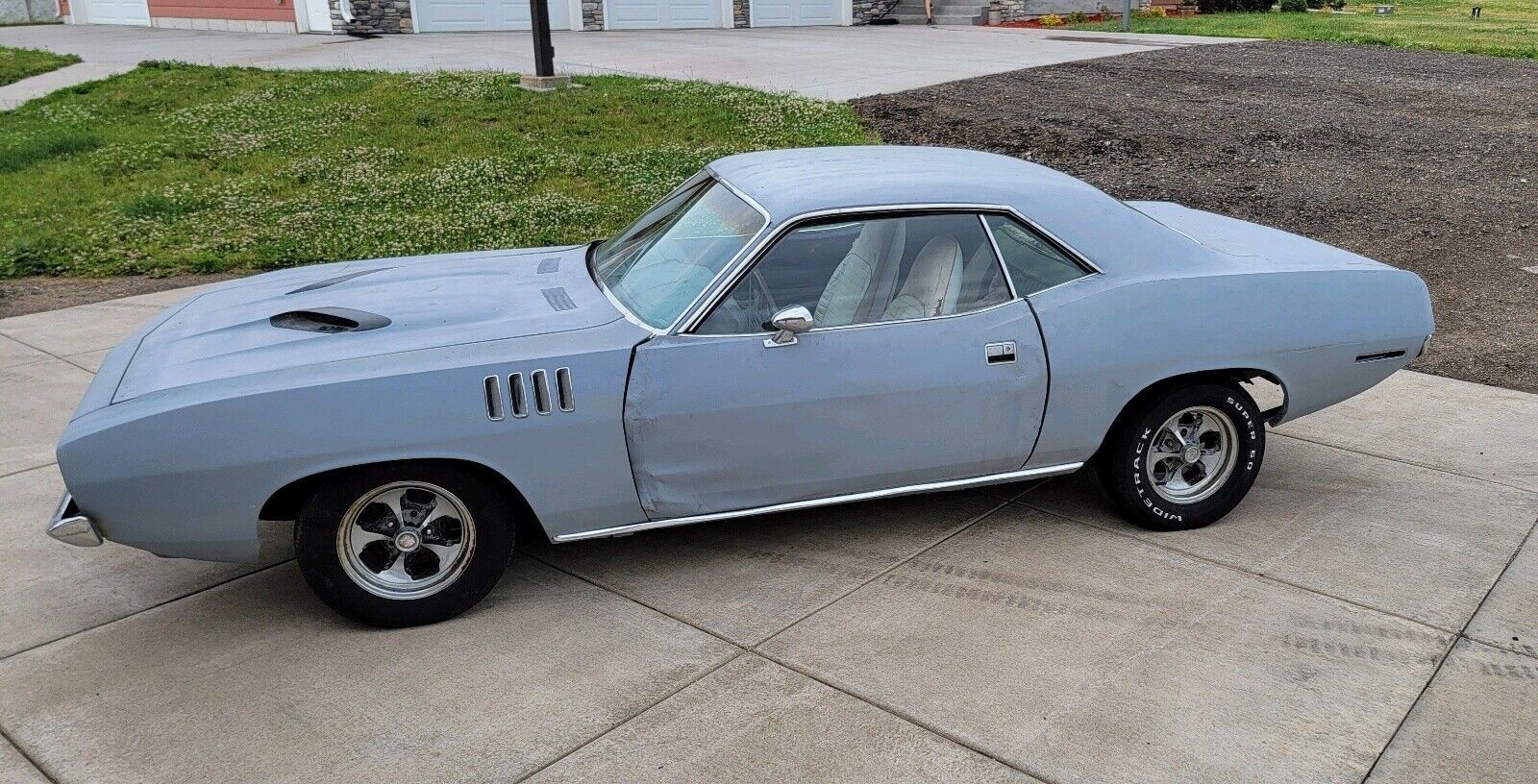From the design standpoint, 1971 was arguably the best year for the Barracuda. Sales plummeted as if gravity was suddenly affecting mathematics, pulling down the ‘Buyers interest’ curves. The cheese grater grille with its quad lamps and the four gills on the fenders gave the refreshed E-body Plymouth the stance of meanness Chryslers was boasting in the brochures. Despite the best Mopar efforts, the Dodge Challenger got the lion’s share, outselling the Barracuda 2:1.
From the 16,000 units built in all trims – Barracuda, Grand Coupe, and ‘Cuda – nearly half (almost 7,700) came with the smallest available V8. The 318-cubic-inch (5.2-liter) was the most popular of the eight offers, compromising eight-cylinder high status and low-cost practicality. Equally preferred was the three-speed automatic gearbox, and this old rusty ‘Cuda found on eBay is a living testament to that historical fact. Although it’s hard to say what color is now on it, the fender tag reveals that it left the Hamtramck factory assembly line 2 dressed in a Sassy Grass Green garment.

But that was in December 1970, and the bright hue on the outside has since been replaced at least once. The uncertainty lies in the engine bay – the photo gallery will point out that there are three colors coexisting on the body of this aged and elements-worn ‘Cuda. Apart from the obvious hue of light blue, there are traces of the original green and some hints of yellow on the fenders’ drip area. The initial paint is visible on the exposed back dash, too, and the car’s detailed history isn’t detailed to help us answer that question. Still, looking at the driver’s side and the trunk is both saddening and revealing – the car had a less than perfect life.
Whoever owned this ‘Cuda and changed its paint decided to leave the trunk floor out of the cosmetic process, and rust ate the metal with furious anger, with no opposition from a protective coating. Currently, the luggage compartment has dual direct air intake from under the car; Chrysler (or any other manufacturer on Planet Piston) never devised such a feature on any automobile. Still, neglect and H2O can alter a car’s original specs beyond engineering imagination.

The manufacturer installed a consistent list of options, as decrypting the fender tag will reveal. Starting with the black vinyl top and black bucket seats (long gone, and the replacing white ones have succumbed to rodents, apparently). The original buyer opted for the Light Package, a Basic Group with Music Master Radio AM, tinted glass, moldings for the roof drip rail, belt, hood, turn indicators on the fender, and driver’s side chrome mirror (manual).
This tired old ‘Cuda also had trunk lights (if they’d still work, it would make it easier to spot the original green showing in the corners) and color-keyed rubber bumpers up front. A black longitudinal Sports Stripe contrasted the brigh green in 1971 when this Mopar was still fresh and clean and cracked the whip on its 230 (gross) ponies. That’s 150 net-rated hp and 260 lb-ft of torque (157 PS/353 Nm) with all accessories and exhaust installed. Power brakes were more of a convenience than a superior-safety feature on these mechanical performance levels, but the car had them, nonetheless.
